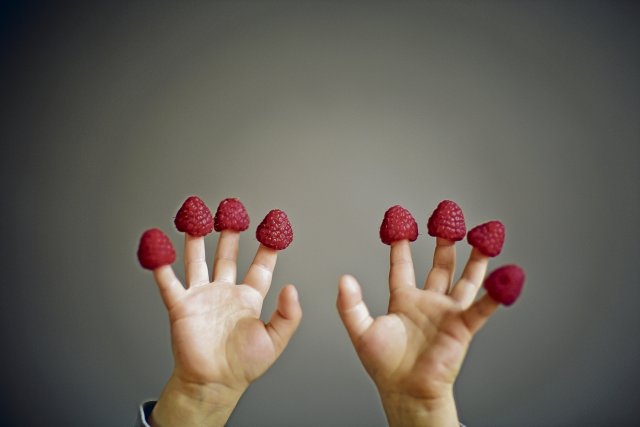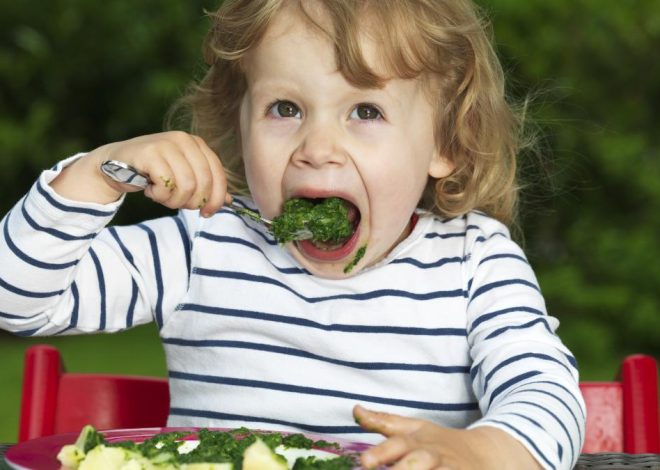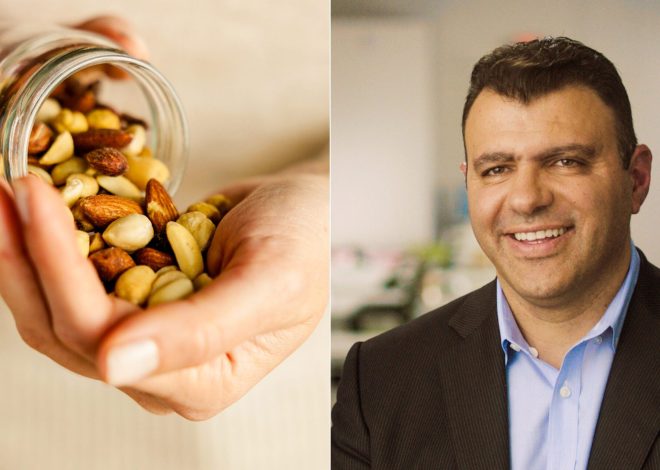Nutrition: Be sure to supplement nutrients | nd-aktuell.de

Another advantage of a vegan diet: it wouldn’t be so much fun with tomato pasta.
Photo: photocase/nailiaschwarz
There is currently a heated debate about whether children can safely be fed a vegan diet. What do you mean?
A vegan diet leads to nutrient deficiencies if you don’t take additional supplements. The risk of such deficiencies is particularly high in children because they are still growing. Vegan diets do not contain vitamin B12, which is essential for blood formation and the functioning of the nervous system. The risk of deficiencies is also increased with other nutrients, for example the long-chain omega-three fatty acid DHA, calcium, iron, zinc and iodine. A mixed vegetarian diet is less problematic, but there are certain things you have to watch out for. We pediatricians believe that a flexitarian diet, in which you eat a lot of plant-based foods but occasionally fish or meat, is best.
interview

IMAGO/IPON
Berthold Koletzko, born in 1954, is a specialist in pediatric and adolescent medicine at the Ludwig Maximilians University in Munich and chairman of the board of the Children’s Health Foundation. He has been researching early childhood nutrition for decades.
Is there a certain age at which it is safer to feed a child a vegan diet?
A vegan diet is not compatible with healthy growth and development unless you supplement. This applies to every age. However, the faster the growth, the quicker deficits appear. Then the nutrient requirement is particularly high. Such phases of rapid growth are, on the one hand, infancy and toddlerhood, and on the other hand, puberty. During this time, young people put on a real growth spurt and often eat like crazy because they have such a great need. Girls also lose iron through menstruation. If you eat a vegetarian or vegan diet, you have a particularly high risk of iron deficiency.
Some parents really want to feed their children vegan. Is there a suitable vegan infant formula?
Yes, soy-based infant formula. Although it is not equivalent to cow’s milk-based formula, it is well suited to feeding non-breastfed infants. However, this is different from a soy drink that you buy in a health food store – that is not suitable for infant nutrition.
Isn’t soy infant milk problematic because it contains hormones in the form of phytoestrogens?
Therefore, it is not our first choice. Our first choice is breastfeeding from a well-nourished mother, the second choice is infant formula based on cow’s milk protein. We would only recommend soya formula if this is not acceptable for ideological reasons.
So is it healthier to breastfeed babies for a long time on a vegan diet?
First of all: Breastfeeding is not a vegan diet, but an animal diet. We recommend that, if possible, all children be fully breastfed for six months and continued to be breastfed even after complementary foods have been introduced. If the mother does not have any nutrient deficiencies, this is very healthy. But if she has been on a vegan diet for a long time, then her breast milk also contains too little vitamin B12, for example. In such cases it is important that mother and/or child receive supplements. We often see children in children’s hospitals who suffer from severe neurological damage such as seizures and brain damage because they were breastfed by vegan mothers for a long time and were given vegan supplementary food for a long time.
nd.DieWoche – our weekly newsletter

With our weekly newsletter nd.TheWeek look at the most important topics of the week and read the Highlights our Saturday edition on Friday. Get your free subscription here.
Do such disturbances disappear again?
The tragedy is that half of these children have permanent damage. If a vegan woman is breastfeeding, she should definitely take nutritional supplements – this already applies during pregnancy. This period and the first two years of the child’s life are particularly sensitive periods as the brain and nervous system are developing. But functional impairments can also occur later. If you want to protect your child, you have to combine a vegan diet with supplements.
Are children who are fed this way as well cared for as children who eat non-vegetarian food?
It is better to meet nutritional needs with food. They contain more than just the essential nutrients. In addition, the availability of nutrients is also different. For example, the body can absorb iron from fish or meat much better than from many preparations.
How well has the topic been scientifically researched?
There are many studies on this. One showed, for example, that children who eat a vegan diet not only have a lower body weight, but also a shorter body length. This clearly shows that the body is not optimally supplied with nutrients and is therefore not exploiting its growth potential. It has also been seen that vegan and vegetarian children are significantly more likely to have an iron deficiency than omnivorous children, who also eat fish or meat. It has to be said: even small amounts of fish or meat are enough. Basically, all experts advocate a plant-based diet.
In a vegan diet, the protein should come from pulses and whole grains. But most children prefer spaghetti and pizza. Can “picky eating” pose an additional risk?
This can be a problem, it depends on the child and the family. It also depends on what the child is used to. Most children who eat vegetarian and vegan diets do not have a protein deficiency. But it is important to cleverly combine foods to meet protein needs, for example beans or lentils with rice or wheat.
How is the issue of vegan nutrition for children viewed in other countries?
In the USA this is viewed less critically. However, you have to take into account that supplementation is much more widespread there. Many foods are enriched with nutrients. In the USA it is also considered “good manners” to go to the drugstore and get a nutritional supplement. That’s why a vegan diet is more easily possible there, because vegan ready-made products usually contain the critical nutrients and many people take a supplement anyway.
And apart from the USA…?
There are a large number of people in India who eat a vegan diet. Vitamin B12 deficiency is widespread there. I have just spoken to an Indian pediatrician who found vitamin B12 deficiency in a very frequent newborn screening. The babies often had developmental disorders and other problems, such as anemia. This is a very big health problem that is now being addressed with various initiatives.

Ethel Purdy – Medical Blogger & Pharmacist
Bridging the world of wellness and science, Ethel Purdy is a professional voice in healthcare with a passion for sharing knowledge. At 36, she stands at the confluence of medical expertise and the written word, holding a pharmacy degree acquired under the rigorous education systems of Germany and Estonia.
Her pursuit of medicine was fueled by a desire to understand the intricacies of human health and to contribute to the community’s understanding of it. Transitioning seamlessly into the realm of blogging, Ethel has found a platform to demystify complex medical concepts for the everyday reader.
Ethel’s commitment to the world of medicine extends beyond her professional life into a personal commitment to health and wellness. Her hobbies reflect this dedication, often involving research on the latest medical advances, participating in wellness communities, and exploring the vast and varied dimensions of health.
Join Ethel as she distills her pharmaceutical knowledge into accessible wisdom, fostering an environment where science meets lifestyle and everyone is invited to learn. Whether you’re looking for insights into the latest health trends or trustworthy medical advice, Ethel’s blog is your gateway to the nexus of healthcare and daily living.



